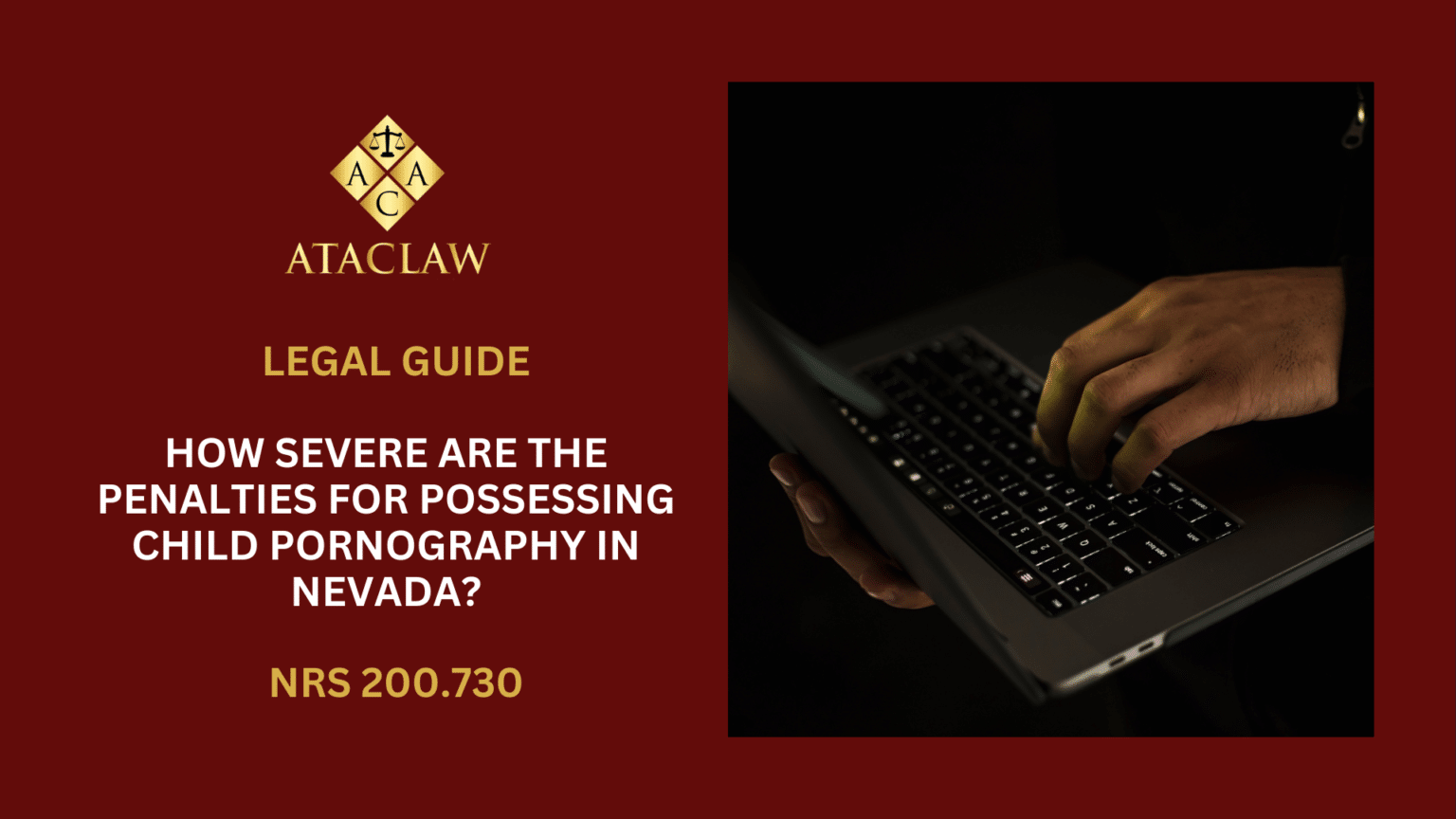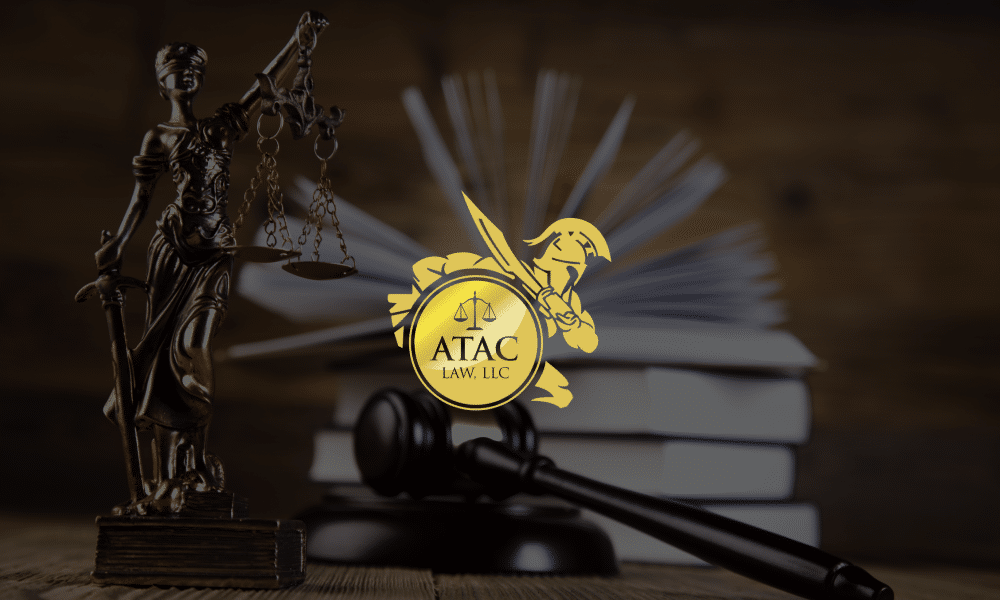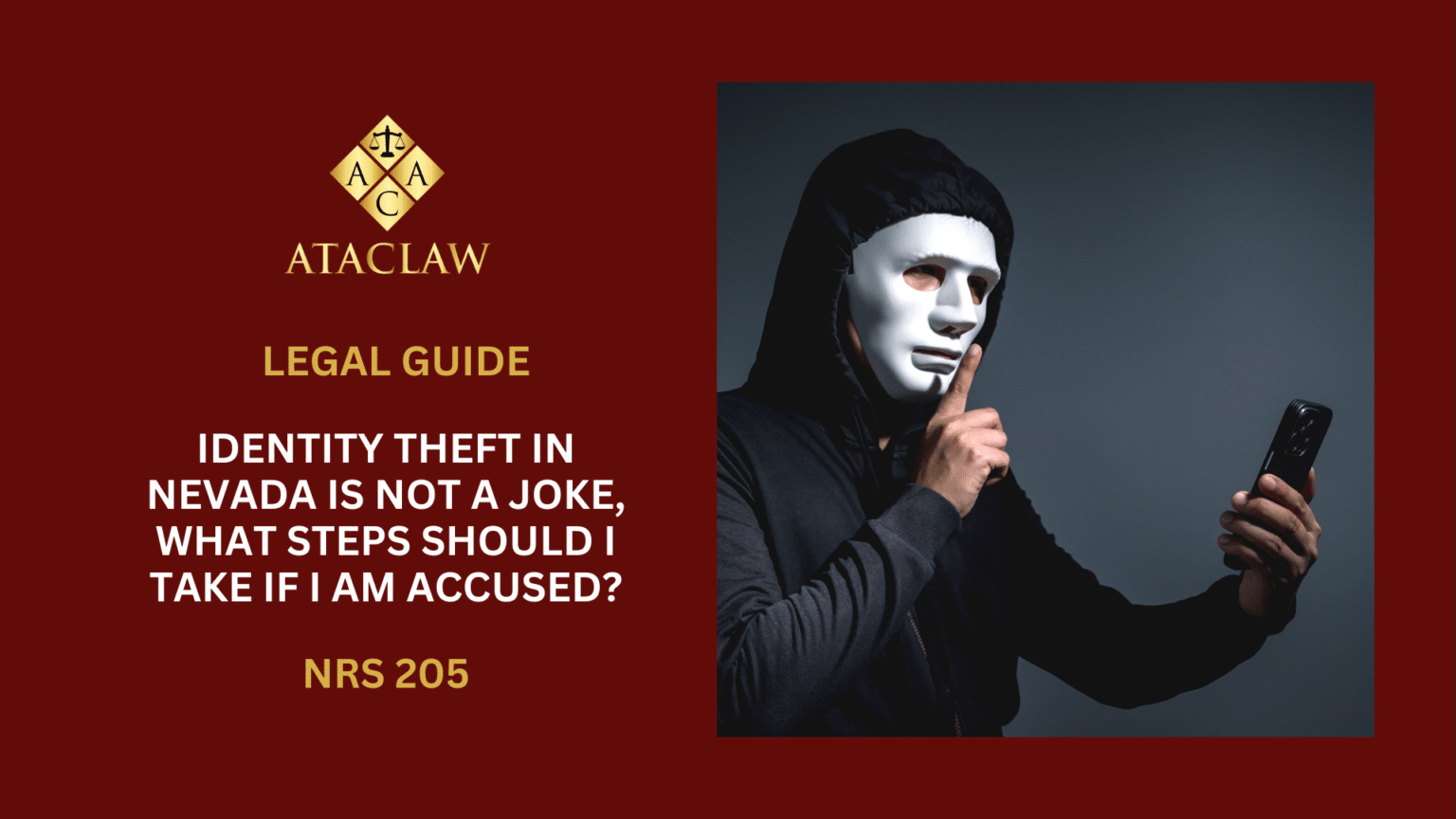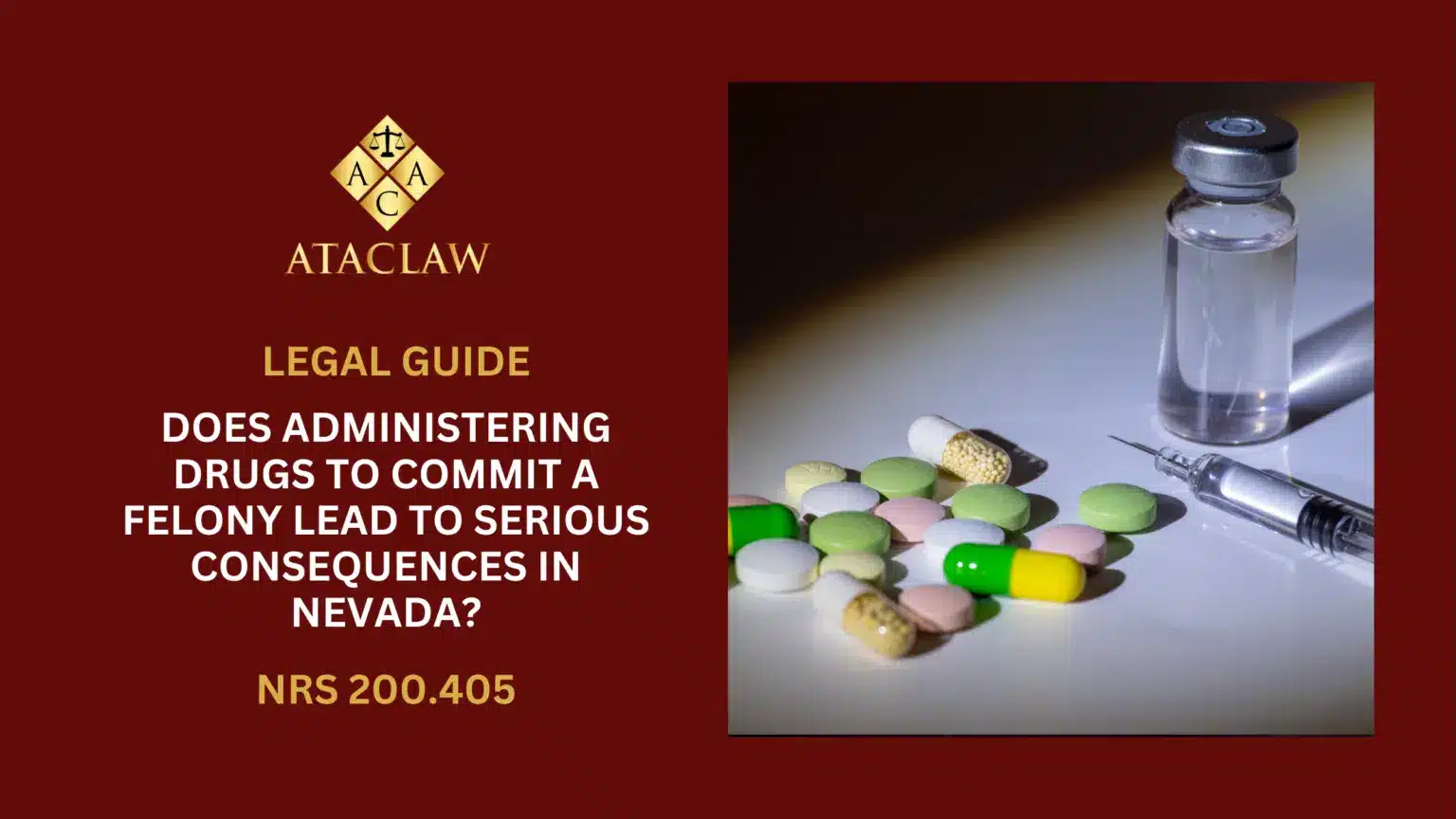Under Nevada law, specifically NRS 200.730, it’s categorically illegal to knowingly possess any visual material depicting a person under the age of 16 years engaged in sexual conduct. The law is clear and uncompromising in its efforts to protect minors from sexual exploitation and abuse. Let’s look closely at what Nevada law states and its implications.
What Constitutes Child Pornography Possession Under Nevada Law?
In Nevada, under NRS 200.730, it becomes a legal offense when an individual “knowingly and willfully possesses for any purpose” any visual material showcasing a child aged 15 or younger engaged in explicit sexual acts. This statute broadly encompasses any form of sexual portrayal, including but not limited to activities like sexual intercourse, lewd genital displays, and various forms of sexual manipulation involving objects or body parts.
Specifically, prohibited activities under this statute include:
- Sexual intercourse
- Lewd exhibition of the genitals
- Oral sex acts such as fellatio and cunnilingus
- Bestiality
- Anal intercourse
- Depiction of excretory functions
- Sadomasochistic abuse
- Masturbation
- Any penetration of the body’s openings
A critical aspect of this law is its treatment of multiple images. Holding multiple images of child pornography at a single location counts as one offense under NRS 200.730.
Example: Consider a scenario where authorities, based on confidential information, search an individual’s residence in Henderson and discover five explicit images of a minor. In this case, the individual, let’s call him John Doe, would be charged with a single count of possessing child pornography since all images were found in one location at the same time.
Conversely, if additional images were found at a separate location, like John Doe’s workplace, he would face separate charges for each location, emphasizing the law’s strict stance on multiple instances of possession.
Is Animated Child Pornography Like ‘Loli Anime’ Considered Legal in Nevada?
In Nevada, there isn’t a clear stance on whether owning ‘loli anime’ is against the law. Since the state hasn’t made a decision on animated child porn, some might think it’s okay because it’s just drawings and doesn’t hurt real kids.
But, it’s a different story with federal laws. They say owning any fake child porn that’s really bad and looks real, even if it’s just cartoons, is illegal if:
- You got it through mail or online,
- It moved across state lines,
- You have enough of it that it looks like you might sell it.
And the federal laws don’t care if the kids in the pictures are real or not. They can still take you to court, and if they win, you could be looking at up to 20 years in jail. So even if you’re in Nevada, you could get in big trouble with the feds for having this kind of animated pornography.
What are the Legal Consequences of Child Pornography Possession in Nevada?
Under Nevada law, the ramifications of being convicted for possessing child pornography, as outlined in NRS 200.730, are severe and escalate with subsequent offenses.
For a First-Time Violation:
- This is considered a category B felony.
- The convicted individual faces one to six years in prison.
- There may be a fine of up to $5,000.
For Repeat Offenses:
- A second or subsequent conviction is classified as a category A felony.
- The punishment can be as severe as life imprisonment with the possibility of parole.
- Fines can again reach up to $5,000.
- Additionally, a second-time conviction mandates lifetime supervision, although there may be a possibility to terminate this supervision after 10 years, as per NRS 176.0931.
Mandatory Sex Offender Registration:
- Regardless of being a first-time or repeat offender, the individual must register as a Tier II sex offender in the Nevada Sex Offender Registry for 25 years.
- This information is accessible to the public, allowing them to search for details like the identities and addresses of registered Tier II offenders.
It’s important to note that being charged with the possession of child pornography does not automatically lead to a conviction. Defense attorneys can implement strategies involving thorough investigation, negotiation, and litigation to possibly reduce the severity of the charges or get them dismissed entirely.
Can Conviction of Child Pornography Lead to Deportation for Non-U.S. Citizens?
Being found guilty of possessing child pornography is deemed an offense demonstrating moral turpitude. This can have serious repercussions for non-citizens in the United States, potentially leading to deportation after serving any imposed criminal sentences.
Non-citizens charged under NRS 200.730 in Nevada should promptly seek skilled legal representation. The goal would be to negotiate the charges down to offenses that do not carry the same risk of deportation, ensuring lesser immigration consequences.
What Defenses Can Be Used Against Charges of Child Pornography Possession?
When it comes to defending oneself against allegations of violating NRS 200.730, related to the possession of child pornography, defense lawyers can present a few effective strategies.
1. Absence of Knowledge and Intention:
A pivotal defense is denying the “knowing and willful” possession of the prohibited content. Legality hinges on whether you were consciously aware of the presence of the illicit material.
Example: Consider the scenario where Alex cohabits with Sam in a house in Las Vegas. Unbeknownst to Alex, Sam conceals illegal videos in their shared living space. Although Alex has access to the area, there is no criminal behavior on their part without knowledge and deliberate possession of the pornography.
If, however, Alex discovers the material and chooses to disregard it, then legal implications alter. Despite not viewing or condoning the content, Alex could face prosecution for permitted retention of the items.
2. Disputing the Pornographic Nature of the Material:
What constitutes pornography can be ambiguous. Defense may revolve around proving that the questioned images hold “serious literary, artistic, political, or scientific value,” which might result in the dismissal of accusations.
3. Age of the Persons Depicted:
Only imagery depicting persons below 16, which is Nevada’s age of consent, falls under the scope of NRS 200.730. If it can be demonstrated that all subjects in the questioned content are 16 or older, then the foundation for the charges crumbles.
Regardless of which defense is employed, the onus is invariably on the prosecution to establish guilt to an unequivocal level if the case advances to trial. This legal standard safeguards the accused by necessitating a high threshold of proof before any conviction.
Is It Possible to Seal a Criminal Record for Child Pornography in Nevada?
In Nevada, the law generally allows for the sealing of criminal records, but there are notable exceptions depending on the nature of the crime. For offenses involving the violation of NRS 200.730, related to child pornography, the records cannot be sealed. This means if you’re convicted for this particular offense, the conviction remains part of your permanent criminal record, accessible in background checks and potentially impacting employment, housing, and more.
However, there is a silver lining for those whose charges are dismissed. If the court dismisses your charges, you’re eligible to have your arrest record sealed immediately. This is a critical distinction, offering some recourse for individuals falsely accused or ultimately found not guilty of charges under NRS 200.730.
What Are the Penalties for Child Pornography-Related Offenses in Nevada?
In Nevada, offenses related to child pornography carry severe legal consequences, categorized based on the nature of the crime. Here’s a breakdown of the penalties for various related offenses:
Involvement of a Minor in Pornography Production:
- Classified as a category A felony under NRS 200.710, this offense can lead to life imprisonment and fines reaching up to $100,000. This highlights the seriousness with which Nevada treats the exploitation of minors in producing pornography.
Promotion of Child Sexual Performance:
- Under NRS 200.720, promoting a sexual performance by a child also falls under a category A felony, mirroring the same severe penalties: a possibility of life imprisonment and fines up to $100,000. This reinforces the state’s stance against those facilitating or promoting the sexual exploitation of children.
Advertising or Distributing Child Pornography:
- Violating NRS 200.725, which concerns the advertising or distribution of child pornography, is considered a category B felony. Offenders can face 1 to 15 years in prison along with fines up to $15,000, underscoring the significant consequences of spreading such material.
Using the Internet to View Child Pornography:
- For first-time offenders, possession of child pornography accessed via the internet is classified under NRS 200.730 as a category C felony. This can result in 1 to 5 years in prison and the imposition of fines up to $10,000, illustrating the penalties for accessing and possessing child pornography online.
If you or someone you know is facing charges under NRS 200.730, it’s crucial to seek expert legal advice immediately. ATAC LAW is here to provide robust defense strategies tailored to each unique case. Our commitment is to ensure your rights are protected.
For further legal assistance and to discuss your case with an expert, don’t hesitate to contact ATAC LAW.




